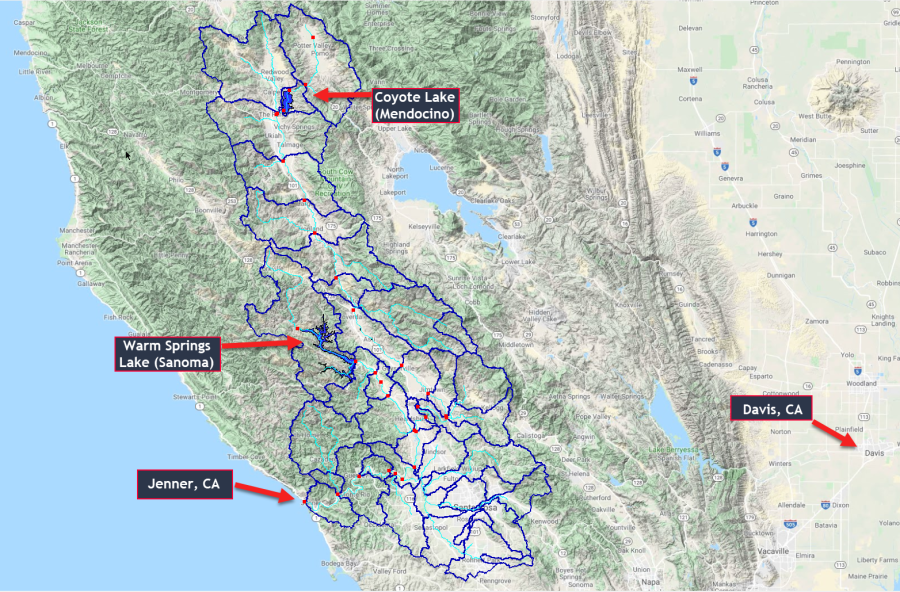Workshop Data
Project Files
Download the Initial Project Files here. Unzip in the C:\CWMS_Class directory. CWMS 3.5 was used to create the workshop files and instructions.
You should have a folder that looks like this:

A forecast has already been created for you. Gridded precipitation and temperature were downloaded from Cumulus and processed by HEC-MetVue.
Background
In this workshop, you will be become familiar with tools and a workflow to calibrate your HEC-HMS model. This workshop focuses on the Russian River in Northern California. As shown below, there are two reservoirs in the watershed: Coyote Lake in the northern portion and Warm Springs Lake in central portion. The Russian River flows into the Pacific Ocean at Jenner, CA.

This tutorial will only focus on calibrating a portion of the HEC-HMS model so the model can make a reliable prediction of reservoir inflow. You will notice that initial model performance is poor. This was purposeful to help with the theme of the tutorial. In practice, model parameters for specific watershed conditions, dry, wet, and average, are fairly consistent between events. For example, infiltration and baseflow parameter would not vary considerably between flood events occurring on a saturated watershed. For most forecasting scenarios, only the infiltration/loss and baseflow parameters need to be adjusted to account for the soil moisture conditions when calibrating a model. Subbasin and reach routing parameters do not need adjustment unless the magnitude of the flood exceeds the magnitude of the flood used to originally calibrate the model.
Objective
The purpose of this workshop is to have you become familiar with HEC-HMS and how to calibrate a model. Being able to calibrate a model quickly is important, as water managers are often required to run multiple scenarios during flood events. They must accomplish these tasks quickly to provide enough time to disseminate and communicate model results within a reasonable time. The workshop consists of a series of tasks which will help you become familiar with tools that streamline the model calibration process. Tasks also highlight key model parameters and their impacts on simulating precipitation-runoff processes.
Tasks
Task 1: Open the Forecast and View Results
Task 2: Calibrate Inflow to Lake Mendocino and Lake Sonoma
Task 3: Calibrate the Model to the Hopland Gage
Solution Files
Project Files
Download the Solution Data here if you would like the watershed and forecast with the full solution.